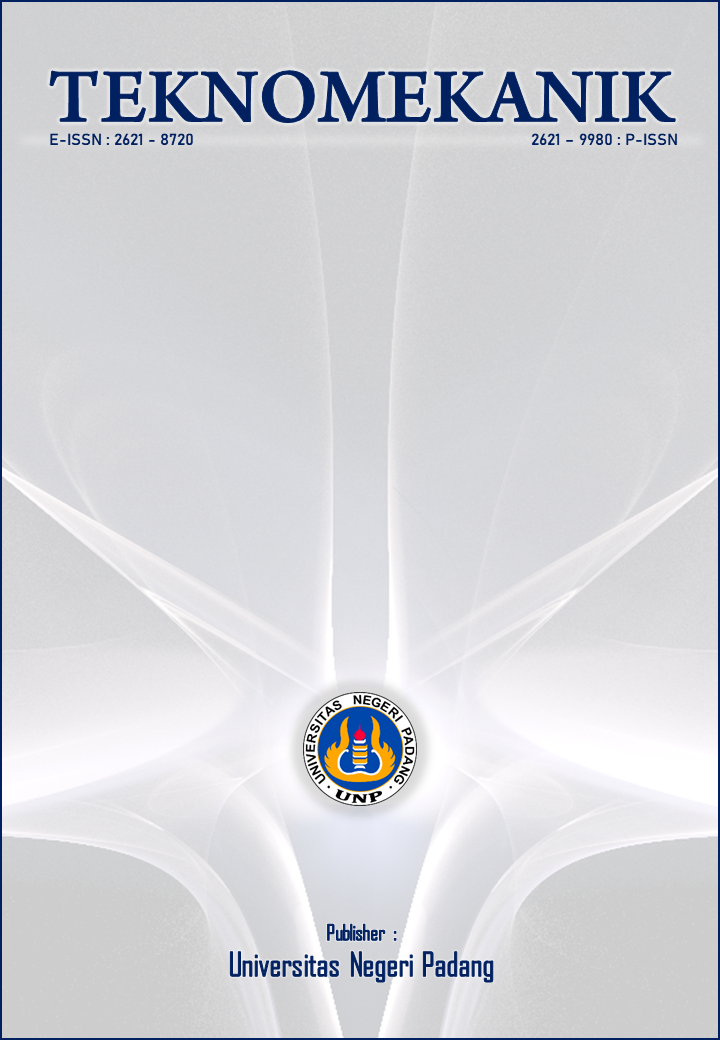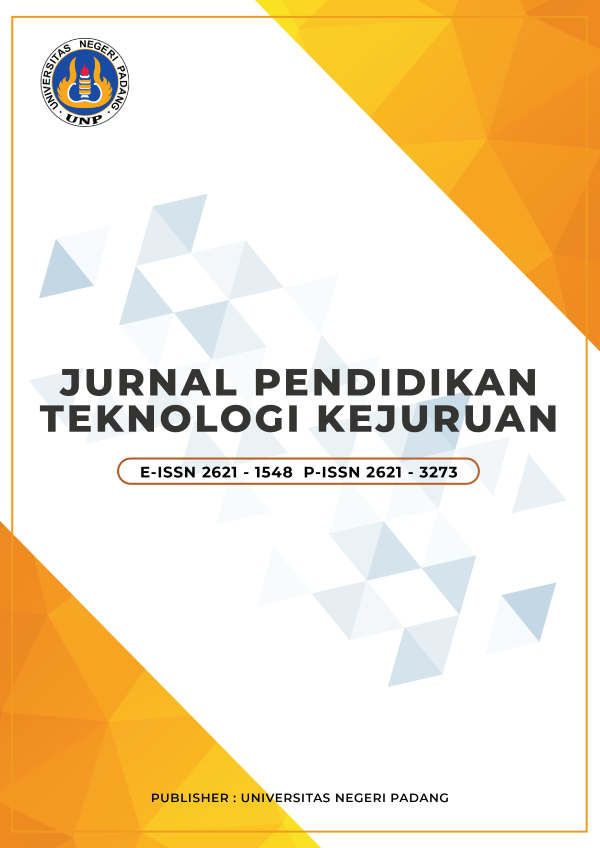The Influence of Project-based Learning Model on mechanical Engineering Drawing Learning Outcomes
DOI:
https://doi.org/10.24036/meej.v1i1.9Keywords:
Learning Models, Learning Outcomes, Project-based Learning, Technical DrawingsAbstract
Learning activities are measured by acquiring the final results obtained by students. Based on the assessment carried out at SMK N 1 Padang class X machining engineering in mechanical engineering drawing lessons, it was found that the dominant student's final exam scores had not obtained scores limited by minimum criteria passing grade, it was known that the significance of student learning to learn to draw machine engineering was not following the achievements. A project-based learning model in coveted research can increase learning outcomes and student response. The experimental study used in this research included two classes X majoring in machining engineering, which was divided into a practical course with a population of 35 students to be applied to the project-based learning model was then observed by two observers, and the control class as a comparison subject of 36 students. The results obtained from the post-test in both categories have increased, but only the experimental class that reached classical completion or minimum criteria passing grade is 75, which has an average of 85.50 above the control class, which is only 71.46. The activeness in the experimental class assessed by two observers received an assessment percentage of 87.50% which was categorized as very good. So the conclusion obtained is that project-based learning impacts learning outcomes and activeness during the mechanical engineering drawing learning process.
Downloads
Downloads
Published
How to Cite
Issue
Section
License
Copyright (c) 2023 Arifin Adli, Ambiyar Ambiyar, Refdinal Refdinal, Purwantono Purwantono

This work is licensed under a Creative Commons Attribution-ShareAlike 4.0 International License.




